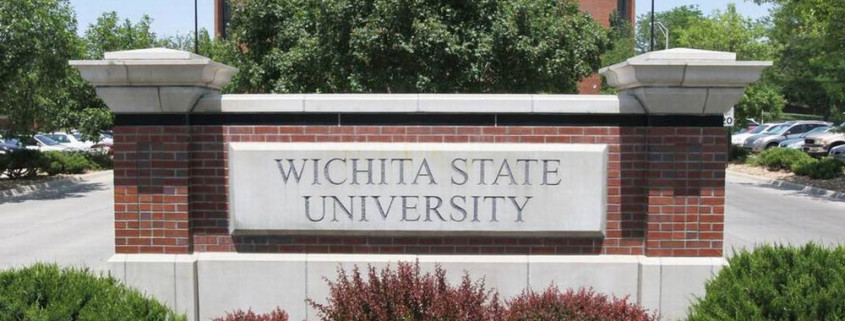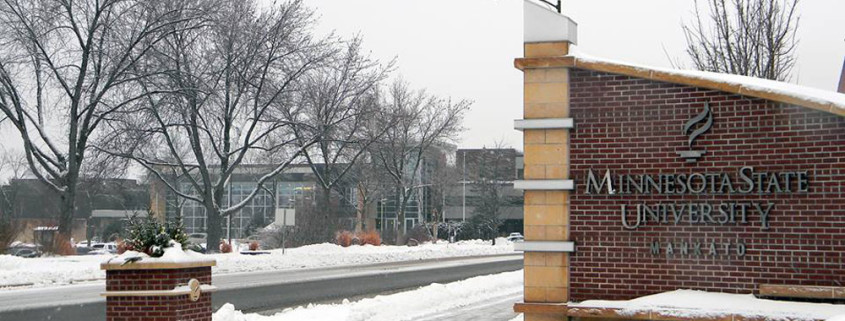Maximize your potential in the land of DIVERSITY !
CANADA! A diverse country with a strong tradition of welcoming people from around the world, Canada is an exciting and safe destination for international students. Every year, more than tens of thousands of students from around the world, including nearly 10,000 Americans, attend Canadian universities and colleges.
Canadian universities are recognized worldwide for their consistently high quality teaching, leading-edge research, and innovation. Canada has two official languages—English and French—and a highly diverse culture, thanks to the contribution of Canadians of all origins. Because of its short history, Canadian culture is above all contemporary. A long tradition of high-ranking universities, modern study facilities and a multinational study environment make Canada an excellent study choice for international students. With so many natural attractions, Canada allows you to explore mountains and lakes, ski slopes and stunning harbours. It has one of the highest standards of living in the world, and its cosmopolitan cities host many festivals and sports events.
WHY SHOULD YOU STUDY IN CANADA ?
Canadians place great importance on learning, and have developed a first-rate education system with high standards. The country spends more on education (as a percentage of GDP) compared to the OECD average, and is the second highest among G-8 countries. Canadian teenagers consistently rank among the best in the world on international tests of reading, science and math – a testament to the outstanding quality of Canadian schools. A Canadian degree, diploma or certificate is well-regarded in business, government and academic circles around the globe.
One of the Best Places in the World to Live: Canada has ranked as one of the top ten places to live in the world since 1994 according to the United Nations (UN) and the Economist Intelligence Unit. In the UN survey Canada earned particularly high marks for its access to education, high life expectancy (due to universal health care system); and low crime and violence rates. In addition, Canada’s largest cities — Vancouver, Toronto and Montreal — have been recognized as world class cities in which to live and work, for their cleanliness and safety and for their cultural activities and attractive lifestyles.
High Standard of Living: Canadians enjoy a standard of living among the highest in the world. Almost 70 per cent of Canadians own their own homes, with a higher percentage owning durable goods, such as automobiles, refrigerators, washing machines, television, telephones and radios. Canada also has an extensive health care system and social security network.
Media, entertainment and artistic endeavours are well-developed in Canada. Canada’s highly sophisticated broadcasting system includes more than 1,900 AM and FM radio stations and some 1387 television stations to serve, entertain and educate the listening and viewing audience. A wide range of cultural activities is also available, including museums, galleries, live theatre, dance and music performances and concerts.
Welcoming Environment: Canada has traditionally been a country of immigrants and has a policy of encouraging multicultural diversity. In this vibrant setting, different perspectives are respected and learning together is encouraged.
Almost all of the world’s ethnic groups are represented in Canada. As a result, most ethnic foods and recreational activities associated with specific cultures are available in Canada. Clubs, informal clubs and associations representing a multitude of ethnic backgrounds are also easily accessible. International student advisors at schools can help students get in touch with such groups.
All major urban centres have a variety of shopping malls, restaurants, theatres, art galleries and museums. Canadian cities provide numerous parks, gardens and beaches for public use, as well as excellent sports and recreation facilities
Beautiful Environment: Canadians place a high value on their natural environment. There are currently 42 national parks and national park reserves in Canada. National parks are located in every province and territory, and some have been recognized as UNESCO World Heritage Sites. Each province and territory has also designated areas as provincial parks, wilderness areas, ecological and nature reserves. There are over 2000 of these designated areas across the country.*
Students who come to Canada will witness one of the most beautiful, natural environments in the world. Canada is also a country of diverse geography, and there is much to experience in its great outdoors: from the lush coastline of British Columbia, the majestic Rocky Mountains of Alberta, the big skies of the prairies, to the ‘maple sugar country’ in the Great Lakes and St. Lawrence and the rugged hills and picturesque coastline of the Atlantic provinces.
* National Parks Board and the Federal Provincial Parks Council.
A Safe Place To Study: Canada is considered to be a relatively peaceful, safe and orderly country. Its violent crime rate decreased for ten consecutive years from 1993 to 2003. Unlike its US neighbours to the south, firearms are strictly controlled and generally are not permitted.
International students who come to Canada should follow the same common sense safety precautions as they would anywhere in the world. Students can contact any Canadian Education Centre to learn more about personal safety, or attend a safety orientation session at their school upon their arrival in Canada.
Possibility of Work/Settlement After Study: International students who have graduated from a Canadian university or college have the opportunity to work in Canada for up to one year after they receive their degree or diploma. International students can work on campus without a work permit. Plans are being made to allow international students to work off-campus, too.
A High Tech Country: Canada is a stimulating environment in which to do business and to learn, thanks to the contributions of many bright and talented scientists, researchers and entrepreneurs. The country is an international leader in computer and information technologies and has a reputation for excellence in such sectors as telecommunications, transportation and engineering; and specifically, aerospace, urban transport, microelectronics, medical devices, advanced software, hydroelectric and nuclear power, lasers and opto-electronics, biotechnology, food and beverage processing, geomatics; and ocean and environmental industries.
High points in Canada’s telecommunications industry include Teleglobe’s CANTAT 3 cable, which is the first of its kind in the world, and which supports high-speed and high-capacity delivery of transoceanic, multimedia transmission. The Stentor Alliance of telephone companies invested $8 billion to provide the latest in broadband technology to 80 per cent of Canadian households. Canada was also among the first in the world to recognize the need to connect schools and libraries to the Internet, and its SchoolNet program is being copied around the world. Industry Canada’s SchoolNet has successfully made Canada the first nation in the world to connect its schools and libraries to the Information Highway.
CANADIAN EDUCATION SYSTEM AT A GLANCE
The Canadian education system is structured to ensure that all students have access to basic education. It offers a broad learning environment and at the same time provides for flexibility in learning. The learning system is based on the premise of encouraging students to think independently and of maximizing their learning potential and interest.
There are about ninety universities in Canada, all of which are government regulated and therefore maintain very high standards of education. Canadian university degrees are widely recognized in the world and are centre of excellent for research, information technology development and genetic breakthroughs. University courses normally lead, within three to five years, to a bachelor’s degree in Arts, Science or to professional disciplines such as Engineering, Business Administration, Accounting, Computer Science and so on. The minimum time required for the second degree, the Master’s, is one year beyond the Honours Bachelor’s degree. Doctoral or PhD degree usually required three to five years’ study after a Master’s degree.
Universities offer superb library facilities, clubs, social activities, and entertainment and sports facilities to students. Many support system exist on campus to meet the individual student’s needs. There are health services, student and peer assistance groups, academic/personal/religious guidance counselors and international students.
BASIC ENTRY REQUIREMENTS FOR INTERNATIONAL STUDENTS
ACADEMIC REQUIREMENTS:
Undergraduate Admission: Canadian Pre-University for Matriculation (OSSD), HSC or GCE “A” Level (a minimum of two principal passes in the appropriate subjects), the Australian matriculation or International Baccalaureate. A few universities in Canada also accept the SSC or GCE ‘O’ Level (all credit) for conditional admission for pathway program. Minimum requirements of marks (CGPA) differ based on institutions and study programs.
Graduate Admission: A four/three-year undergraduate degree programs (or equivalent) which is recognized in credential issuing country as well as in Canada. Student with pre-master’s program from recognized institution is also eligible for admission in master’s program. Minimum requirements of marks (CGPA) differ based on institutions and study programs. Student who has completed masters program with required results and other supporting academic achievements can apply for admission in doctoral admission.
LANGUAGE PROFICIENCY REQUIREMENTS:
Acceptable proof of proficiency in English such as TOEFL or IELTS or CAEL Test. The required English proficiency test scores vary from one institution to another based on students admission level. Students, who do not meet the TOEFL or IELTS requirements, will be required to complete an English as a Second Language (ESL) program in an accredited Canadian institution.
TEST SCORE REQUIREMENTS:
Generally no test score required for study in Canada. But scores are advantages if you have any.
SAT is not mandatory but considered as advantage to get admission in some highly ranked institutions for undergraduate programs.
GRE (non-business) / GMAT (for MBA/other business related field) is typically an advantage (not mandatory) for entry into master and doctoral programs in highly ranked institutions.
BASIC DOCUMENT REQUIREMENTS FOR VISA APPLICATION
ADMISSION RELATED REQUIREMENTS:
- A letter of Acceptance from a Canadian educational institution confirming the name and length of the program, tuition fees, living expenses, semester for which the admission is valid and last date for registration of the program.
- All educational certificates & Transcripts (All documents should be translated to English if required with original).
- Confirmation of any scholarship, grant, teaching or research assistantship including name of the providing institution or organization, awarded amount per semester or year and duration.
- If you will be attending an educational institution in the province of Quebec, you must provide a CAQ (certificate d acceptation du Quebec) from the Government of Quebec.
- All other supporting academic & Professional documents that you have provided to your institution for admission/Scholarship
FINANCING/SPONSOR OTHER DOCUMENT REQUIREMENTS:
- International Travel Document (passport) valid for the duration of your studies plus one month.
- Two copies of most recent photographs (with white background)
- Proof of sufficient funds to cover your tuition and living expenses for your first year of study in Canada (You must also demonstrate that sufficient funds will be available to support yourself during the whole duration of your registered program. The source of income of you/income is also required.
- If some or the total amount of your funds are provided by a sponsor (either parents or third party) you must also include legal evidence of support with clearly stated reason of support.
- Your police clearance certificate.
- Your birth registration certificate
- If you are under 18 years of age at the date of your departure for Canada, you must provide a notarized guardianship agreement signed by both your parents (and legal guardian) and the person who will be your guardian in Canada.
- Proof of Tuition fee payment for your registered program as per letter of admission.
- Completed Visa Application forms.
- If a consultant or a legal representative has provided you help to prepare your application or to gather the supporting documents, you should provide the details of this person (name, name of company, address and phone number). If the consultant or legal representative is located in Canada, provide his CSIC number.
- 2 complete photo copy sets of all above attested and notarized documents.
| BOOK AN EVENT PLACE |
|---|
| SIGN UP FOR SCHOLARSHIP |
| CHECK APPLICATION STATUS |
| REQUEST AN ADVISING POST |
| SCHEDULE FREE COUNSELING |
| SCHEDULE PSYCHOMETRIC TEST |
| REQUEST PERSONALISED INFORMATION |










